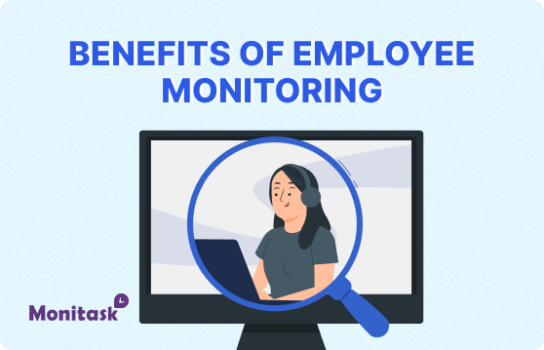Job Accommodations
Understanding Job Accommodations in the Workplace
Job accommodations are essential adjustments or modifications made to a job or work environment that enable an individual with a disability to perform their job duties effectively. These accommodations play a crucial role in promoting workplace inclusivity, diversity, and equal opportunity employment. In this comprehensive guide, we'll explore the various aspects of job accommodations, their importance, and how they're implemented in modern workplaces.
The Legal Framework for Job Accommodations
Job accommodations are not just a matter of goodwill; they're a legal requirement in many countries. In the United States, the Americans with Disabilities Act (ADA) mandates that employers provide reasonable accommodations to qualified employees with disabilities, unless doing so would cause undue hardship to the organization.
Similarly, other countries have their own legislation to protect the rights of workers with disabilities. For instance, the UK has the Equality Act 2010, while Canada enforces the Employment Equity Act. These laws aim to ensure that individuals with disabilities have equal access to employment opportunities and can perform their jobs effectively.
Types of Job Accommodations
Job accommodations can take various forms, depending on the individual's needs and the nature of their disability. Here are some common types of accommodations:
1. Physical Modifications
These involve changes to the physical work environment to make it more accessible. Examples include:
- Installing ramps or elevators for wheelchair users
- Providing ergonomic furniture or equipment
- Modifying workstations to accommodate specific needs
2. Assistive Technology
Technological solutions can significantly enhance the capabilities of employees with disabilities. Some examples are:
- Screen readers for visually impaired employees
- Speech recognition software for those with mobility impairments
- Hearing aids or amplification devices for hearing-impaired workers
3. Schedule Modifications
Flexible work arrangements can be crucial for employees managing chronic conditions or disabilities. These may include:
- Flexible start and end times
- Part-time work options
- Additional break times for medication or rest
4. Job Restructuring
Sometimes, modifying job responsibilities can help an employee perform their core duties more effectively. This might involve:
- Reassigning non-essential tasks to other employees
- Allowing work from home options
- Providing additional training or support
The Process of Requesting and Implementing Job Accommodations
The process of requesting and implementing job accommodations typically involves several steps:
1. Employee Request
The process usually begins when an employee discloses their disability and requests an accommodation. While it's generally the employee's responsibility to initiate this process, employers should create an open and supportive environment that encourages such discussions.
2. Interactive Dialogue
Once a request is made, the employer and employee should engage in an interactive dialogue to understand the specific needs and explore potential solutions. This conversation is crucial for identifying the most effective and reasonable accommodations.
3. Documentation
Employers may request medical documentation to verify the disability and the need for accommodation. However, they should be mindful of privacy concerns and only request information directly relevant to the accommodation.
4. Assessing Reasonableness
The employer must determine whether the requested accommodation is reasonable and doesn't pose an undue hardship. Factors considered include the cost of the accommodation, the organization's resources, and the impact on operations.
5. Implementation
Once an accommodation is agreed upon, it should be implemented promptly. This may involve purchasing equipment, modifying workspaces, or adjusting policies.
6. Monitoring and Adjustment
After implementation, it's important to monitor the effectiveness of the accommodation and make adjustments as needed. This should be an ongoing process, as an individual's needs may change over time.
Benefits of Providing Job Accommodations
Implementing job accommodations offers numerous benefits, not just for the employees with disabilities, but for the entire organization:
1. Increased Productivity
By providing the necessary tools and support, employees with disabilities can perform their jobs more effectively, leading to increased productivity.
2. Enhanced Employee Retention
When employees feel supported and valued, they're more likely to remain with the company, reducing turnover costs.
3. Improved Workplace Diversity
Job accommodations enable organizations to tap into a wider talent pool, enhancing workplace diversity and bringing in varied perspectives.
4. Positive Company Image
Companies that prioritize inclusivity and accommodation often enjoy a positive public image, which can be beneficial for both customer relations and recruitment.
5. Legal Compliance
By proactively providing accommodations, companies can ensure compliance with disability laws and avoid potential legal issues.
Challenges in Implementing Job Accommodations
While the benefits of job accommodations are clear, organizations may face certain challenges in their implementation:
1. Cost Concerns
Some accommodations may require significant financial investment, which can be a concern for smaller businesses or those with limited resources.
2. Lack of Awareness
Many employers and employees may not be fully aware of the range of possible accommodations or the process for requesting them.
3. Fear of Disclosure
Some employees may be hesitant to disclose their disabilities due to fear of stigma or discrimination.
4. Balancing Needs
Employers must balance the needs of the employee requesting accommodation with those of other employees and the organization as a whole.
Best Practices for Implementing Job Accommodations
To overcome these challenges and create a truly inclusive workplace, organizations can adopt the following best practices:
1. Develop Clear Policies
Create and communicate clear policies regarding job accommodations, including the process for requesting them and what employees can expect.
2. Provide Training
Offer training to managers and HR personnel on disability awareness, the accommodation process, and the benefits of an inclusive workplace.
3. Foster an Inclusive Culture
Create a workplace culture that values diversity and inclusion, making employees feel comfortable disclosing their needs.
4. Be Proactive
Don't wait for employees to request accommodations. Proactively consider accessibility in all aspects of the workplace, from physical design to technology choices.
5. Leverage Resources
Utilize resources like the Job Accommodation Network (JAN) for ideas and guidance on implementing effective accommodations.
6. Regular Review
Regularly review and update accommodation policies and practices to ensure they remain effective and relevant.
The Future of Job Accommodations
As technology advances and workplace norms evolve, the landscape of job accommodations is likely to change. Here are some trends to watch:
1. Remote Work
The rise of remote work, accelerated by the COVID-19 pandemic, has opened up new possibilities for accommodating employees with disabilities.
2. AI and Machine Learning
Artificial intelligence and machine learning technologies are creating new opportunities for assistive technologies, potentially making certain accommodations more effective and less costly.
3. Universal Design
There's a growing emphasis on universal design principles, which aim to create environments and products that are accessible to all people, regardless of age, disability, or other factors.
4. Mental Health Focus
As awareness of mental health issues grows, there's likely to be an increased focus on accommodations for mental health conditions.
Conclusion
Job accommodations are a crucial aspect of creating an inclusive, diverse, and productive workplace. By understanding the types of accommodations available, the process for implementing them, and the benefits they bring, organizations can create environments where all employees can thrive. As we move forward, it's clear that job accommodations will continue to play a vital role in shaping the future of work, ensuring that everyone has the opportunity to contribute their unique skills and perspectives to the workforce.
Remember, providing job accommodations is not just about complying with legal requirements; it's about recognizing the value that every individual brings to the workplace and creating an environment where everyone can reach their full potential. By embracing this approach, organizations can build stronger, more innovative teams and contribute to a more inclusive society as a whole.


